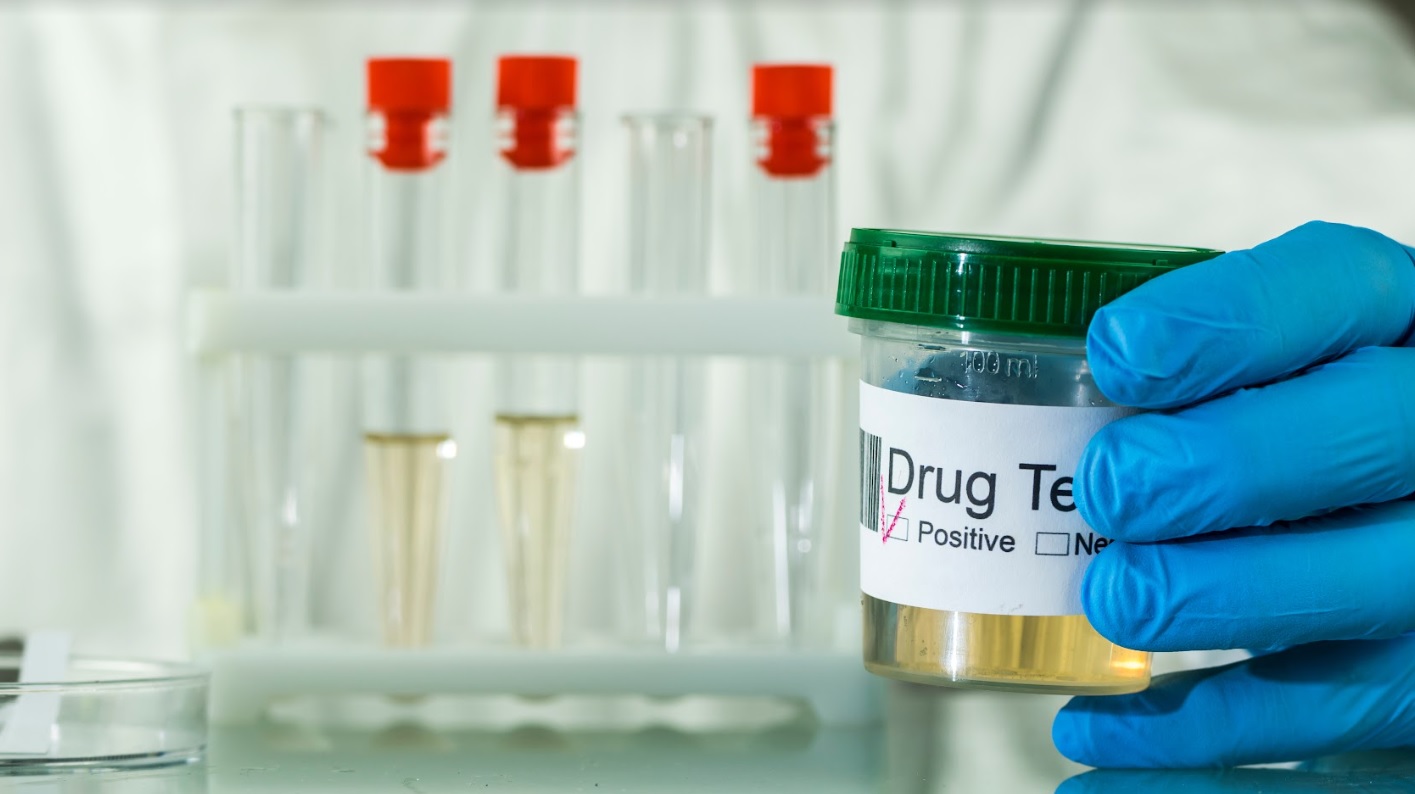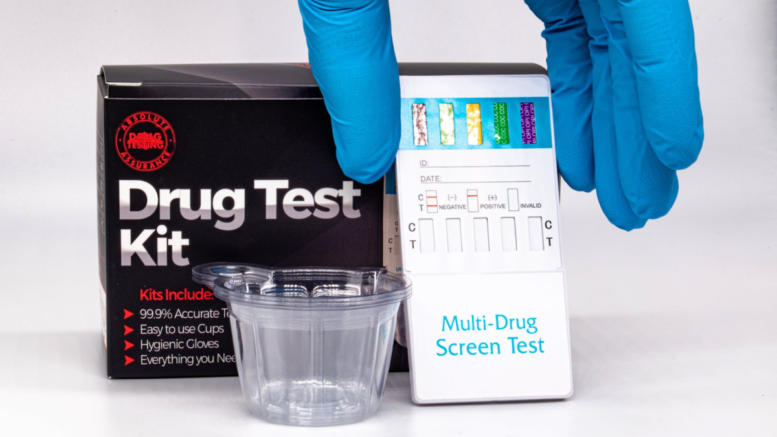The concept of testing a potential employee for drugs in his or her system is one that seems to be more common in the U.S. than in other countries. This can partly be attributed to the war on drugs that started in the 70’s, and its effects are still experienced to this day.
However, people often have a number of questions about this trend. Is drug testing a practice that is needed in 2023? Do regular blood tests show drugs? In a time when laws against common substances such as marijuana are growing more relaxed, does alcohol count in a drug test?
There can be a lot of confusion regarding the subject, and in this article, we are going to help clarify some key points when it comes to drug and alcohol testing in the workspace context.
Why Do Some Employers Conduct Drug Tests?
According to the National Survey on Drug Use and Health, about 59.3 million Americans aged 12 and above have used some form of illegal substances.
While there are many criticisms of Nixon’s war on drugs, it cannot be denied that America is suffering from an opioid crisis, and dangerous drugs like Fentanyl are coursing through the veins of many.
In the past, drug tests were usually reserved for government agencies and companies that directly worked with the government. However, the practice has now trickled down to many companies.
The side effects of drug usage are severe and are known to impair cognition and normal functioning when under the influence. As a result, employers tend to be wary of those found to test positive.
Here are some reasons why:
Safety Concerns
A lot of blue-collar roles require working with heavy machinery or dangerous equipment. A worker that operates them when under the influence is a significant safety hazard to those around him. This is because critical motor skills are dulled, and reaction times become far worse.
It isn’t just the heavy drugs that cause this, of course. Several common drug types, like antidepressants and benzodiazepines, are known to have the same effect.
Legal Requirements
Many fields of work are required by law to conduct regular drug testing. The department of transportation, for example, requires that all employees in safety-sensitive positions like truck drivers, pilots, and train operators be subject to drug testing.
Some states also have legal requirements for employees that deal with sensitive information to undergo similar testing.
There are several other reasons why employers may not want their employees to have drugs in their system while at work.
The higher levels of absenteeism, lower morale among employees, and general unsavory behavior that might occur when under the influence of an intoxicant can cause employers to not want drug-using employees anywhere near their business or company.
Does Alcohol Presence Count in a Drug Test?
We have understood why employers might want to have their employees drug tested, and a lot of people might agree with the rationale, especially when it comes to “hard drugs” like heroin, cocaine, and fentanyl.
But what about alcohol? Does that count on a drug test?
Well, it depends on the employer. Some employers are only concerned with the presence of the five key drug categories that the Substance Abuse and Mental Health Services Administration (SAMHSA) recommends drug tests to look for. These five drugs are THC, cocaine, opiates, amphetamines, and phencyclidine.
Most drug tests primarily check for these substances and may or may not reveal the presence of alcohol, but this depends on the specific test used. However, if a test is used that indicates alcohol consumption, can you be fired?
Technically, the answer is no.
It is against the law to fire a person just because they drink. However, there are a lot of grey areas. Any behaviors or actions that can be attributed to alcohol will be, and employers can definitely fire you for those reasons.
For example, if you were rude to a customer, swore at a colleague, or forgot to submit a report, all of those can be grounds to fire you if it coincides with a drug or alcohol test that shows you had alcohol in your system at the time.

It is a good idea to do some good old-fashioned research about the position you are applying for and confirm whether alcohol use is considered a deal breaker when it comes to that particular field.
While you want to read up on the different types of drug tests, being aware of the different types of alcohol tests can be helpful as well. This is because each of them has a differing range of time that they can detect alcohol content, and if you consumed alcohol before the detection range, you are likely safe.
What Are the Different Types of Alcohol Tests That Are Commonly Used?
There are a variety of alcohol tests where employers test potential and existing employees for signs of alcohol consumption and use.
When doing so, they have to ensure that the tests are reliable and of the highest quality. If alcohol testing is unreliable and indicates that a person has consumed alcohol even when he or she hasn’t, that would be a grave error.
For that reason, services like Health Street, a New York-based corporation that offers a wide battery of professional drug, DNA, paternity, and alcohol tests, have become popular. In addition, they also help perform background checks, which most employers might wish to conduct on their employees.
They provide services in the United States and certain parts of Canada and partner with some of the best labs for testing collected samples. Services like Health Street typically offer the following alcohol tests and more:
Breath Alcohol Tests
If you were ever pulled over by a police officer and they suspected you of drinking, you might have been administered one of these tests. This test typically uses a breathalyzer, a device that measures the amount of alcohol in your breath.
Breath alcohol tests work because alcohol is a volatile substance and can evaporate from your bloodstream and into the air.
When this happens, the device is able to detect alcohol presence in a small window of 24 hours since you last had a drink. Breathalyzer tests are often used by law enforcement officers, but they aren’t the most accurate alcohol test out there.
Urine Alcohol Tests
Whenever you drink, the alcohol you consume is absorbed into your bloodstream and is then processed by your liver. However, some of the alcohol will exit the body, which can then be detected via sampling and analyzing a person’s urine.
This type of alcohol test can be viable for alcohol consumed within the last 12-24 hours, but some tests that check for EtG (ethyl glucuronide) can detect alcohol that was consumed up to 3 days ago.
Hair Alcohol Tests
This type of test is one of the few that are able to detect alcohol content over a greater period of time than other tests. These tests are one of the more accurate ones out there and work because EtG and EtS (ethyl sulfate), two metabolites of alcohol, are easily detected in hair as it grows. While these tests are quite accurate, they do happen to be on the more expensive side.
Blood Alcohol Tests
A blood alcohol test is most commonly used in a medical setting and is also one of the most accurate tests out there, with incredibly low rates of false positives. However, it does have a relatively short detection period of only about 12 hours since the last drink. Blood is drawn through a vein in the arm and is then sent for analysis.
This test is obviously one of the more invasive ones out of the others but wins in terms of accuracy and also by virtue of being able to detect one’s degree of intoxication.
Legal and Ethical Considerations
Drug and alcohol tests can often be seen as an invasion of a person’s privacy. There may be certain health conditions that the individual may wish to keep confidential but is forced to reveal during a drug test.
Such people have to choose between a potential job and upholding their privacy which is a less-than-ideal situation.
It is also important that companies and employers have clearly defined protocols regarding drug testing so that it cannot be used randomly as a means to intimidate or get rid of a particular employee.
Drug testing should also only be carried out by a licensed physician who can provide an accurate interpretation of the results.
Employers ought to require a legitimate reason for conducting a drug test.
This could be in the form of government-mandated laws or the presence of undeniable proof that an individual seems to be under the influence and whose behaviors and actions are a serious risk to the welfare of the company, its assets, and the well-being of its employees.
Conclusion
Drug tests can be considered a consequence of the high rates of substance abuse in the U.S. and the preference of companies to be risk-aversive and profit-focused. Employees under the influence of substances pose a risk to companies, often in the form of greater liabilities that employers might have to deal with.
People who consume alcohol may wonder if they are subject to the same consequences that come with failing a drug test. Unless you are applying for a position that obviously requires sobriety, such as driving and operating machinery, most employers tend to prioritize harder substances.
However, you should ensure that your drinking doesn’t provide probable cause for your employer to hold you accountable. This means being extra careful not to cause grave errors at the workplace that can be attributed to drinking.
